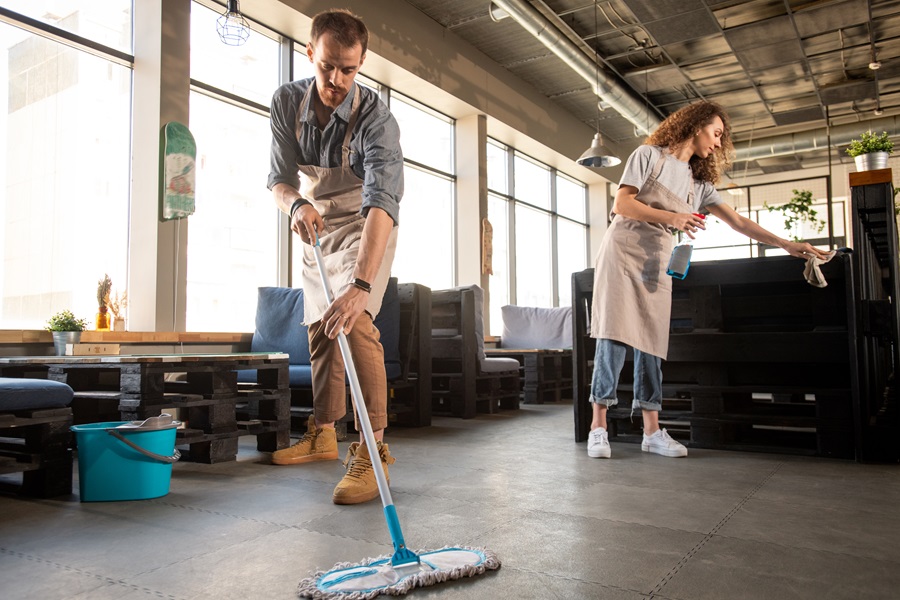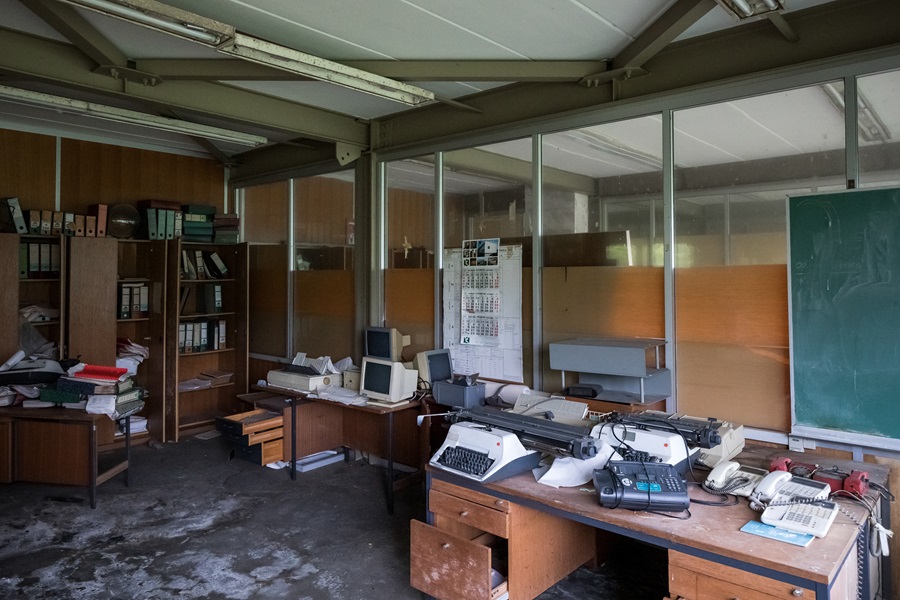
Cleanliness isn’t just a preference for New Jersey businesses—it’s a legal and ethical obligation. Whether you’re running a restaurant, managing an office space, or operating a childcare center, your facility must meet specific cleaning and sanitation standards set by regulatory agencies. Compliance not only ensures a safe environment for your employees and customers, but it also protects your business from costly penalties and reputational damage.
Let’s explore what cleaning compliance really means in New Jersey, why it’s so important, and how your business can stay ahead of the curve.
Why Cleaning Compliance Matters
For local businesses, cleaning compliance is about more than just passing inspections. It directly impacts:
- Health & Safety: Proper cleaning protocols reduce the spread of viruses, bacteria, and allergens. In high-traffic or shared spaces, routine disinfection can prevent illness outbreaks and ensure workplace wellness.
- Legal Protection: Failing to comply with New Jersey’s cleaning and sanitation codes can result in hefty fines, temporary closures, or even lawsuits. Compli0\ance helps safeguard your operations.
- Public Trust & Reputation: Today’s customers and employees are more hygiene-conscious than ever. Clean environments build trust and show your commitment to safety and professionalism.
Industry Regulations Relevant to NJ Businesses
Cleaning compliance can look very different depending on the nature of your business. Here are key standards that apply to various sectors in New Jersey:
Healthcare Facilities
Hospitals, clinics, dental offices, and outpatient centers must follow:
- OSHA regulations related to bloodborne pathogens and sanitization
- NJ Department of Health standards on infection prevention and environmental services
- Use of EPA-approved disinfectants and strict cleaning protocols for patient care areas
Restaurants and Food Service Establishments
- Must follow NJ Retail Food Establishment Code and FDA Food Code
- Requirements include routine sanitizing of prep areas, proper waste disposal, pest control, and hand hygiene
- Cleanliness directly affects inspection scores and food licenses
Childcare Centers & Schools
- Governed by the NJ Department of Children and Families (DCF) and Department of Education
- Mandates cover daily cleaning of toys, restrooms, eating areas, and frequent disinfection of shared surfaces
- Cleaning logs and documentation are often required for licensing
Commercial Offices
- OSHA recommends maintaining a clean and hazard-free environment
- NJ employers are encouraged to meet Indoor Air Quality (IAQ) standards, including routine cleaning of HVAC systems
- Post-pandemic, many office tenants also require visible cleaning practices for employee reassurance
Gyms and Fitness Centers
- Must follow guidelines from CDC and NJ Department of Health for frequent disinfection
- Daily cleaning of workout equipment, locker rooms, mats, and bathrooms
- Use of signage, hand sanitizer stations, and cleaning schedules are expected
Common Cleaning Compliance Mistakes
Even with the best intentions, businesses often fall short on compliance due to these common oversights:
- Lack of Documentation: Not maintaining cleaning logs or inspection reports can lead to penalties during audits.
- Using Non-Compliant Products: Disinfectants must be EPA-registered or meet specific efficacy requirements.
- Neglecting High-Touch Surfaces: Doorknobs, light switches, shared keyboards, and phones require frequent sanitizing.
- Infrequent Cleaning: Deep cleans once a month aren’t enough. Many spaces require daily or even hourly maintenance.
- Untrained Staff: Relying on untrained janitorial staff can lead to poor sanitation practices or misuse of chemicals.
- Overlooking Air Quality: Clean surfaces are important, but so is the cleanliness of the air—especially in HVAC-heavy buildings.
How Royal Cleaning Helps You Stay Compliant
Royal Cleaning understands that each business faces unique regulatory challenges. That’s why we take a compliance-first approach, ensuring your facility not only looks clean but also meets or exceeds all relevant sanitation standards in New Jersey.
Here’s how we support your compliance efforts:
- Tailored Cleaning Protocols: We create customized plans that align with your industry’s regulatory framework.
- Certified & Trained Staff: Our cleaning professionals are trained in OSHA safety standards, chemical handling, and industry-specific requirements.
- Approved Products: We use EPA-approved, non-toxic disinfectants that are safe for people and powerful against pathogens.
- Compliance Documentation: We maintain cleaning logs and checklists for transparency and audit readiness.
- Ongoing Quality Checks: Supervisors conduct periodic reviews to ensure every service meets compliance benchmarks.
From industrial warehouses to boutique fitness studios, we deliver peace of mind through regulatory adherence and consistent results.
Tips for NJ Business Owners to Stay Ahead of Cleaning Compliance
Staying compliant doesn’t have to be stressful. Here are a few proactive steps business owners and managers can take:
- Schedule Routine Assessments: Regularly review your cleaning procedures and identify gaps.
- Partner with a Professional Cleaning Service: Outsourcing ensures consistency and access to expertise.
- Stay Updated on State Guidelines: Laws and health recommendations evolve—subscribe to NJDOH or local health department updates.
- Document Everything: Keep cleaning logs, training records, and inspection reports organized.
- Educate Your Team: Make cleanliness a company-wide priority by sharing guidelines with all employees.
If you’re a business in Northern New Jersey and you’re unsure whether your current cleaning standards meet regulatory requirements, it’s time to call in the experts. At Royal Cleaning, we offer tailored cleaning programs that align with your industry’s legal and health obligations.
Book a free compliance consultation today and let us help you create a safer, cleaner, and fully compliant work environment.
With Royal Cleaning on your side, you can stop worrying about fines and focus on what you do best: running your business.





